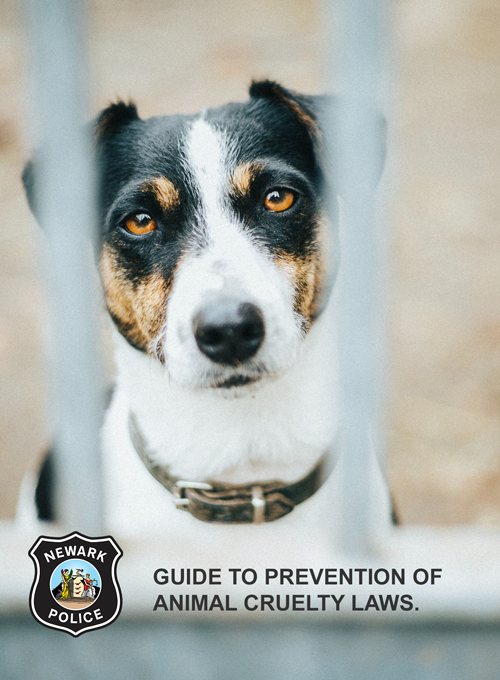As societal awareness of animal welfare burgeons, the question of whether to involve law enforcement in cases of animal cruelty looms large in the minds of compassionate citizens. The issue is complex, often muddied by misconceptions about law enforcement’s role in handling such cases and the legal frameworks that govern animal rights. Can one truly call the police or animal control for instances of animal cruelty? The answer, delineated by legal parameters and ethical considerations, offers a roadmap for action.
Animal cruelty encapsulates a wide spectrum of behaviors, from neglect and abuse to exploitation. Each state in the United States has enacted laws specific to animal welfare, addressing the various forms of maltreatment animals can endure. For those who encounter a situation where they suspect animal cruelty, understanding the legal nuances and available resources is imperative.
Firstly, it is essential to recognize that many jurisdictions empower local law enforcement agencies, including police departments and animal control offices, with the authority to investigate reports of animal cruelty. In some cases, dedicated animal protection units exist within police departments, who are specially trained to handle matters related to animal welfare. Therefore, if one observes a sick, abused, or neglected animal, contacting local law enforcement is both a viable option and a civic duty.
When you decide to report suspected animal cruelty, ensure that your observations are well-documented. Taking photos or videos can provide crucial evidence, establishing the severity of the situation. Moreover, noting the exact location, any known information about the animal’s owner, and specific details regarding the observed maltreatment can aid in the investigative process. Clarity and thoroughness become some of your most potent tools when advocating for the vulnerable.
Notably, it is important to differentiate between active cruelty and neglect. Active cruelty can include deliberate acts of abuse, like physical harm or torture, while neglect typically refers to the failure to provide necessary care and basic needs. Understanding this distinction can guide your approach when reporting to authorities.
In the instance where immediate danger is present, such as an animal trapped in a hot car or in a violent situation, it is imperative to contact emergency services or the local police department without hesitation. In such contexts, timely intervention is crucial for the animal’s wellbeing. Emergency hotlines are equipped to escalate calls quickly, dispatching resources to address the situation at hand.
However, let’s consider the potential limitations and challenges that individuals might face when reporting. Law enforcement, although often well-intentioned, may not always have the resources or expertise to handle animal cruelty cases effectively. Response times can vary widely based on the jurisdiction, available personnel, and other pressing matters clamoring for attention. Thus, it might be necessary to pursue additional avenues for advocacy.
Beyond local police departments and animal control, animal welfare organizations and humane societies often play a crucial role in addressing cases of cruelty. These entities possess the specialized knowledge and training to navigate the intricacies of animal law. Many organizations not only receive reports of cruelty but also mobilize to offer rehabilitation for abused animals and can provide vital resources to those seeking to advocate for animal rights.
Engaging with organizations such as the ASPCA or local humane societies leverages a broader spectrum of resources. They can provide guidance on what steps to take, support for witnesses, and even legal representation if necessary. Their expertise can ensure that your report does not fall through the cracks of bureaucracy.
Moreover, it is worth noting that, in certain instances, the bond of community can further galvanize the fight against animal cruelty. Mobilizing neighbors or local activists can amplify your concerns, shining a spotlight on the issue and putting pressure on authorities to act when they might otherwise remain passive. Collective reporting can underscore the systemic nature of the problem rather than positioning it as an isolated incident.
Legal frameworks governing animal cruelty often include provisions for civil suits in addition to criminal statutes. Individuals may pursue legal action against those who harm animals, allowing for a channel of restitution that extends beyond mere penalties imposed by law enforcement. This means that victims of animal cruelty—now represented by their caretakers—can assert their rights in a court of law, potentially leading to significant change through penal repercussions and public awareness.
Yet, invoking the law can be complicated; it requires navigating a labyrinth of statutes that can differ dramatically from one state to another. Some states may have stringent penalties for animal abuse, while others offer meager repercussions that fail to deter offenders. Thus, consulting with animal law specialists can provide invaluable insight into the legal landscape and the most effective steps to take in your jurisdiction.
In closing, while the instinct to call law enforcement may feel like a daunting or even impractical step, it is a necessary cog in the machinery of advocacy for animals. Navigate this process with vigilance and compassion. The myriad of resources available—from law enforcement to dedicated animal welfare organizations—comprises the lifeline that countless animals depend upon. Persistently seeking justice not only holds abusers accountable but also fosters a culture of responsibility toward animal welfare across communities. Together, through informed action, a profound shift in societal norms regarding animal treatment can emerge, ensuring a future where cruelty is met with resolute opposition.








